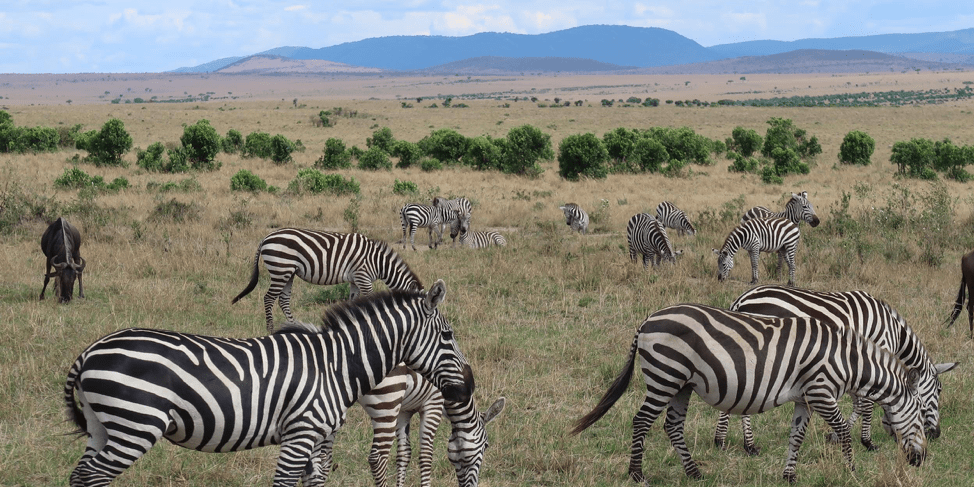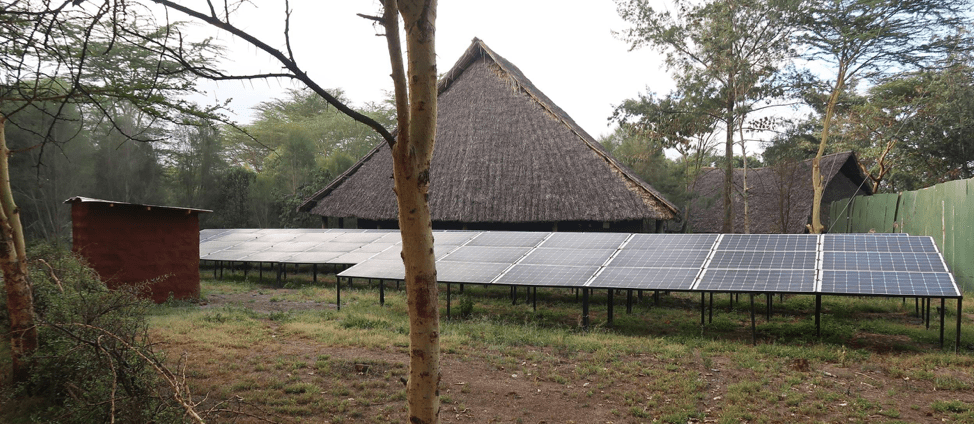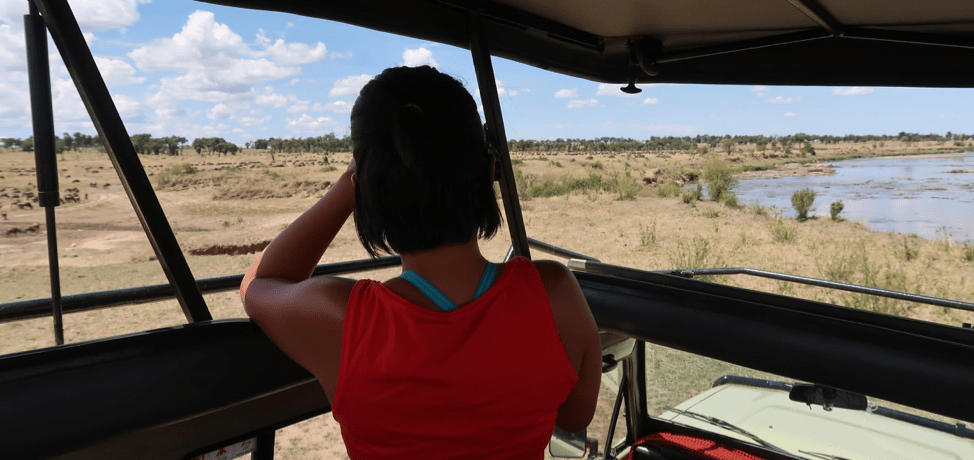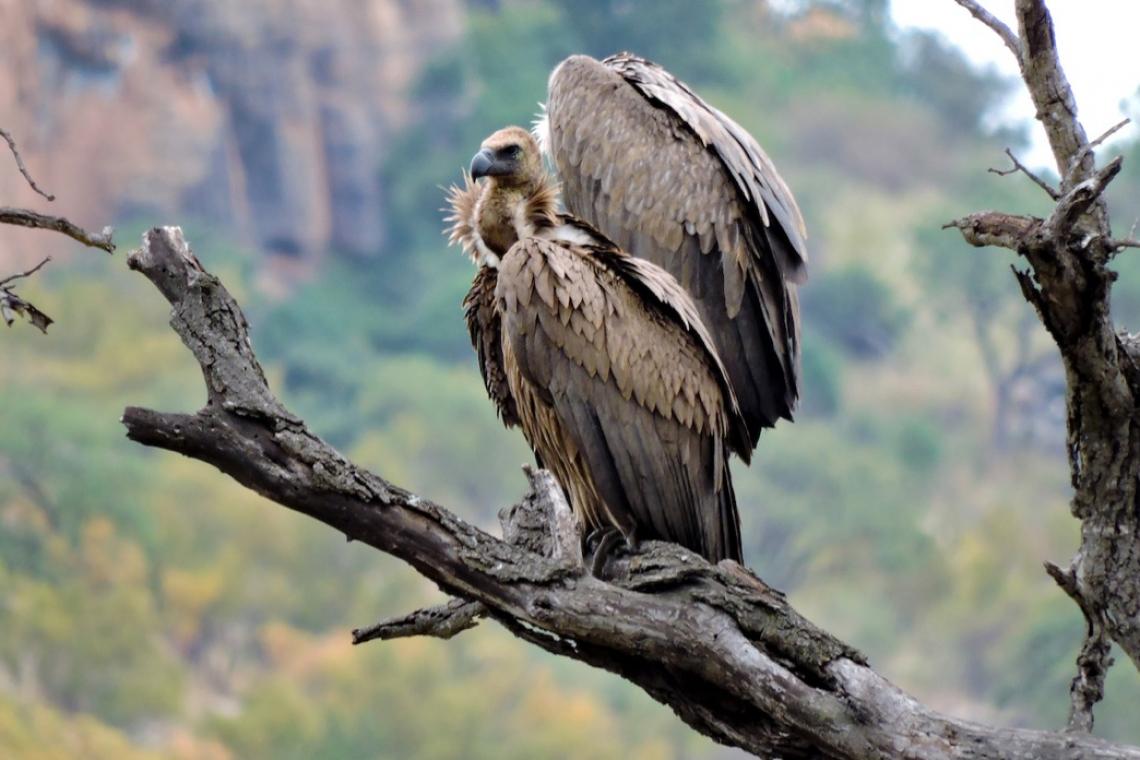Preserve the wonders of the world while exploring them in your travels
The wonders of the world are for all to see, enjoy and preserve. Travelling makes this possible - from increasing cultural understanding to witnessing amazing sights and sounds. There's no denying the impact of travelling as one of the best forms of education, but sadly, it is not without its consequences. Adverse effects such as the influx of visitors putting a strain on the cities’ resources, use of fossil fuel to facilitate travel and the steadying rise in carbon footprints have not gone unnoticed. That's why sustainable safari is essential now more than ever.

What is a Sustainable Safari?
It merely means that travellers and tour operators need to become more conscientious and seeks new ways to ensure a travel experience that strikes a balance between satisfying our wanderlust and contributing to the wellbeing of the planet. This way, those that come after us can have something to look forward to when they visit the beautiful safaris across Africa. National Geographic outlines the three pillars of sustainable travel as:
- Environmental -- Upholding the eco-friendly practices of Reduce! Reuse! And Recycle!
- Cultural and Natural - Saving endangered species and restoring historic buildings to preserve their heritage
- Socio-economic -- Supporting host communities, the local economy, and advocating fair wages to local employees
That said, here are eight ways for how you can make your safari more sustainable:
1. Join A Group Safari
Group joining safari has become a trend in recent times and offers huge benefits to those with a rather tight budget or first-time travelers. Various local tour operators provide these services. Group joining plays a significant role in promoting a sustainable safari because it allows all parties involved to travel together and reduce the emission of carbon dioxide that would normally ensue from a series of solo travels. Group joining also allows for hiking at some point when necessary cutting down on funds and fuel at the same time.

2. Choose Eco-friendly Accommodation
Always opt for hotels that are certified in line with sustainability goals such as with the GSTC recognised standard with Travelife. Before your stay, question their sustainability initiatives and eco-friendly facilities, such as solar power, wind turbine, rainwater harvesting, and energy-efficient lighting. It also helps if they have a recycling program. When searching for accommodation options for your safari, consider lodging with locally run hotels and lodges as they tend to be more eco-friendly and supports the local economy.
3. Patronize Local Tour Operators
Patronizing local tour operators is vital for sustainability since it ultimately supports the local community and helps grow their economy. Besides the local tour operators are more familiar with the terrain, allowing for a more intimate and authentic safari experience. Supporting them is often also more cost effective compared to internationally run companies. In addition to patronizing these local operators, it is also important to pay good wages for services rendered and recommend others to do the same after your trip. Here’s some tips when choosing a safari operator.
4. Support Organizations That Preserve and Protect Wildlife
The goal of sustainability is to ensure the survival of our ecosystems. Supporting organizations that preserve and protect wildlife is a positive step towards achieving this goal. Don't patronize any form of animal exploitation, such as riding elephants or walking with lions for financial gain. Such practices are abusive to these creatures, and the objective of sustainability is defeated.
5. Don’t Buy Products Of Endangered Species
Buying or selling of products derived from endangered species is a crime against nature. You should question the source of some antique items. Across Africa, this market continues to threaten the existence of elephants, marine turtles, tigers, and rhinos among other species. For instance, the sales of Ivory in Africa has led to protracted poaching crisis. Demands of such items fuels crime against wildlife.
6. Avoid Air Travel Where You Can
Planes are among the leading causes of carbon emissions, so try to avoid them when you can. For instance, during your safari tour, drive between parks instead of taking chartered flights. This may seem like a long shot, but the impact is enormous. Also, instead of using cars that run on fuel, you can use electric vehicles that are more eco-friendly which has an added benefit of being almost soundless, so you don't disturb the animals. This ‘slow travel’ trend is emerging and being a part of it can help save the environment. Lastly, for any unavoidable flights you have, you can buy carbon offsetting by investing in various recognised organisations that can help you with this.

7. Opt For Fresh Food
Up to one-third of global carbon footprints come from the food we consume. Meat production and large-scale fancy packaging are causing more harm than good so ask to be served fresh food. Alternatively, make sure your safari operator uses eco-friendly lunch boxes that are plastic free and as such don’t harm the environment.

8. Say No To Plastic
Plastics are useful, but now they threaten our environment since they are not biodegradable. The effects of plastic on our ecosystem is enormous. That's why it's essential to carry your plastic utensils along during your safari trip, so you don't have to get any more new ones.
The responsibility of travelling through Africa’s safaris sustainably lies with every individual. We must understand that while travelling around the world is fun, and we should also make a conscious decision to be more responsible with the planet’s limited resources. Make that decision today!
------------
Erika Atienza is from the Philippines travelling through Africa with her husband, Martin from Denmark. Erika first came to Africa as a marketing volunteer that ended up turning into a business. As she frequents the continent a lot for work, she decided to put up a blog to help and encourage others to visit Africa especially after seeing how little information is available to help travellers explore this continent with ease. Even more after realizing that the world has connected Africa with poverty and crimes or only tribes and safari. She aims to show the Real Africa by living local and travelling sustainably. Unravel Africa with them at whileinafrica.
Website: https://whileinafrica.com/
Instagram: https://www.instagram.com/whileinafrica/
Twitter: https://twitter.com/whileinafrica
Facebook: https://www.facebook.com/Whileinafrica/
Youtube: https://www.youtube.com/channel/UCTG6zHuHaQwji-oDROg_BuA?sub_confirmation=1
Shop for a cause
Shop on amazon.com | amazon.co.uk



